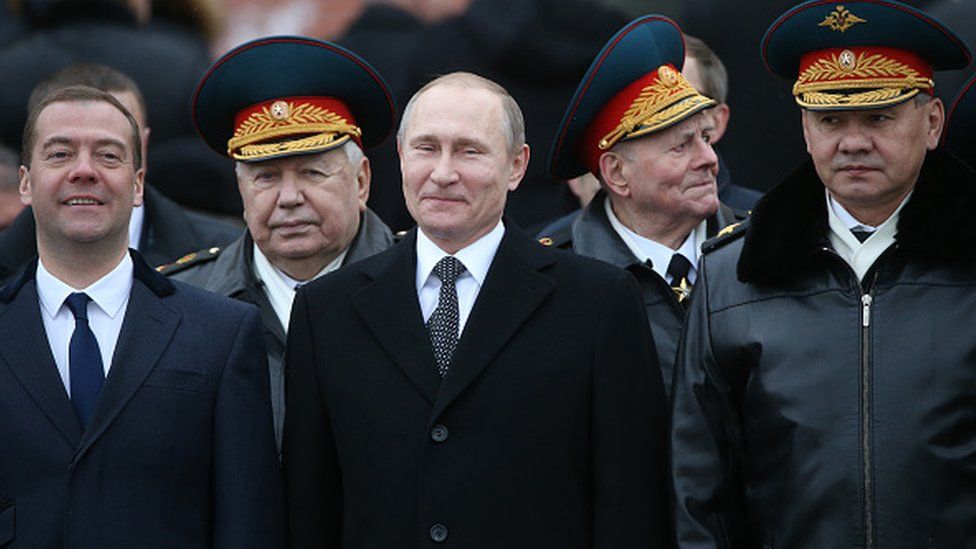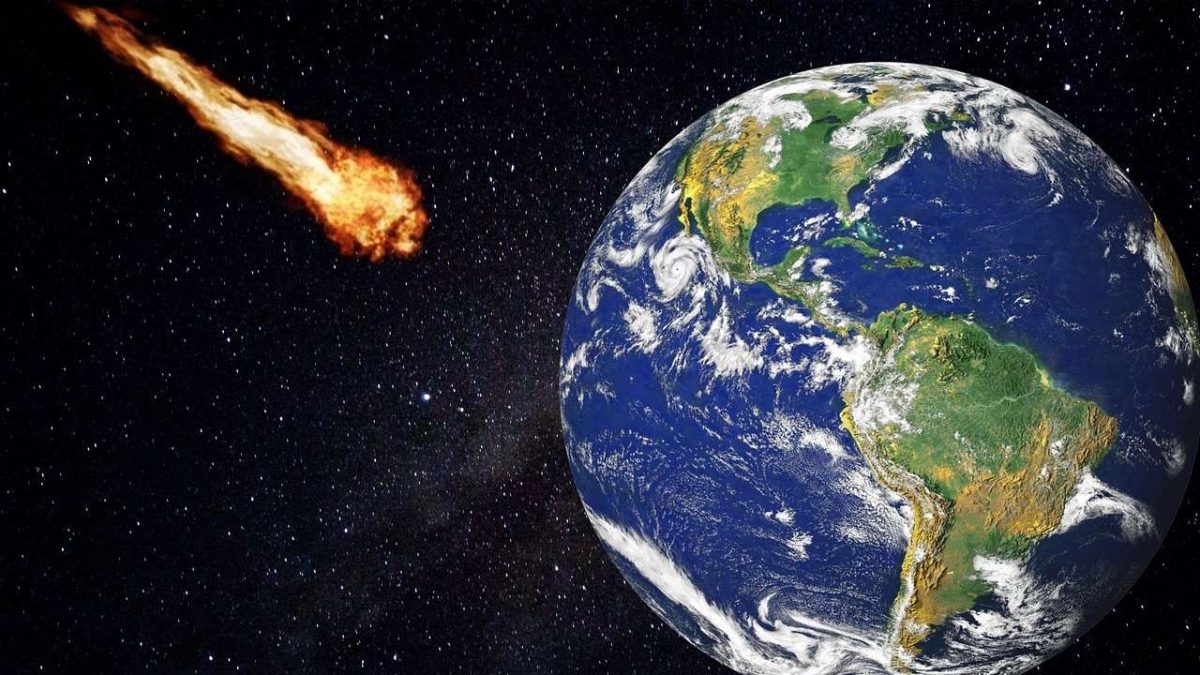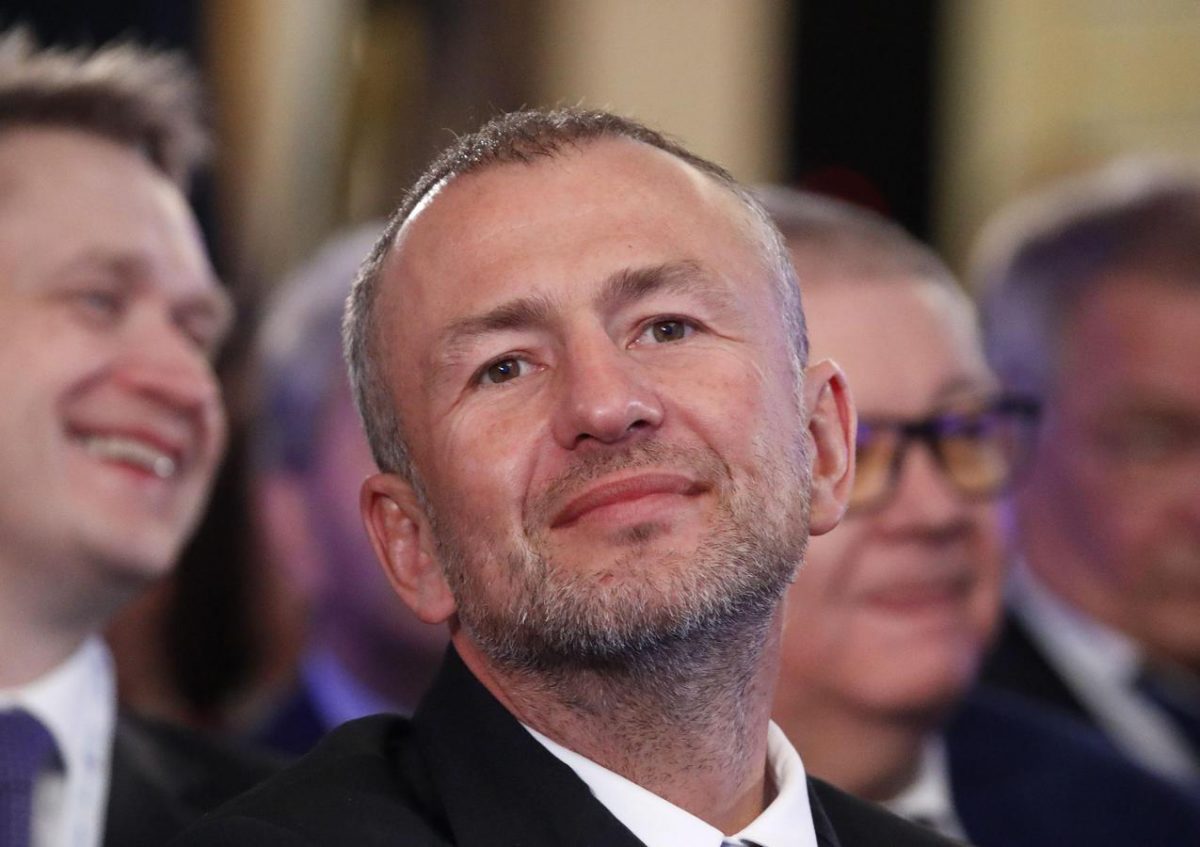The UK government froze Mr Abramovich’s assets last week as part of its sanctions response to the Ukraine war.
He and other wealthy Russians have been targeted to put pressure on President Vladimir Putin.
The sanctions prevent them from making transactions related to their properties and businesses in the UK.
Mr Abramovich’s frozen assets include Chelsea FC, which was allowed to continue operating under a special licence granted by the UK government.
The 55-year-old Russian billionaire, who has denied close ties to President Putin, has also been linked to the ownership of properties in the UK.
They include a 15-bedroom mansion on Kensington Palace Gardens, an exclusive street known as “billionaires’ row” in west London.
Crown Estate lease
Land records show companies that manage assets for Mr Abramovich are registered as the lease owners of the property.
This means the companies own the home, but the land it was built on belongs to the Crown Estate – a business created by Parliament to oversee a portfolio of the British monarch’s properties.
The Queen is not involved in management decisions by the Crown Estate, which is tasked with generating profit for the government.
The terms of the lease require the companies to pay the Crown Estate “£10,000 rising to £160,000” over a 125-year term, a Land Registry document shows.
When asked about the impact of sanctions on Mr Abramovich, a spokesperson for the Crown Estate said they would not comment on the details of individual leases.
But condemning the invasion of Ukraine, the spokesperson said: “We are doing all we can to comply swiftly with the introduction of sanctions.”
The BBC has requested comment from a spokesperson for Mr Abramovich.
The restrictions on rent payments were first reported by the Wall Street Journal newspaper, which said Mr Abramovich bought the house for $140m (£107m) in 2011.
Built in the mid-1800s, the Grade II listed building hosted a Soviet diplomatic mission in 1972 and is across the road from Kensington Palace.
Licences needed
Last week the UK government imposed travel bans and full asset freezes on “seven of Russia’s wealthiest and most influential oligarchs”, including Mr Abramovich.
These measures prohibit anyone in the UK from dealing with frozen assets owned, held or controlled by a sanctioned person.
Legal experts said Mr Abramovich would have to apply for licences to make any transactions related to his properties – from security services and utility bills, to maintenance and gardeners.
A licence is a written permission from the Treasury allowing an act that would otherwise breach financial sanctions. The special licence granted to Chelsea FC is one example.
A Treasury spokesperson said the department cannot comment on specific properties.
In general, though, a sanctioned person who is subject to an asset freeze can still live in their house but cannot rent or sell it, the spokesperson said.
The spokesperson said they can “apply for a licence on the grounds of ‘basic needs’, which can cover things like payment of insurance, property management, rent or mortgage payments, utility charges”.
“The licence would enable their bank to release those specific payments without contravening the freeze.”
Joshua Ray, a lawyer for Rahman Ravelli, told the BBC that licence applications “can often take at least several weeks if not longer”.
“With respect to licences related to Chelsea, the government has signalled a willingness to put applications on a fast track, but that doesn’t appear to apply to his other UK assets,” said Mr Ray, who advises international companies on sanctions.
Treasury guidance says lawyers advising a sanctioned person “cannot receive any payment” for that service without a licence.
Mr Ray said Mr Abramovich “would likely need to engage a lawyer located in a jurisdiction where he is not yet sanctioned”.
On Sunday, Housing Secretary Michael Gove told the BBC’s Sunday Morning programme the government was looking at using the properties of Russian oligarchs sanctioned by the UK for “humanitarian purposes”.
But he said there was “quite a high legal bar to cross and we’re not talking about permanent confiscation, adding “if we can use it in order to help others let’s do that”.











